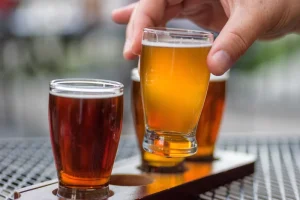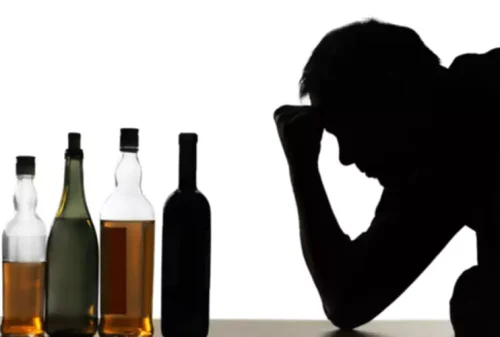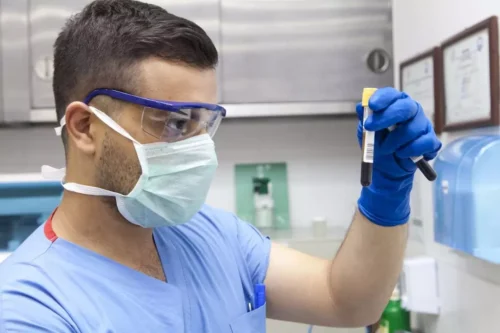Doenças
4 min leitura
10 Tips for Building Healthy Relationships in Early Sobriety

However, one essential aspect that often goes unnoticed is the importance of human connection in recovery. Research has shown that establishing and maintaining strong connections with others is critical in overcoming addiction and maintaining long-term sobriety. If an individual already has pre-existing conditions like depression, bipolar disorder, and anxiety, unhealthy relationships can worsen the symptoms. Once the symptoms become worse, individuals may self-medicate and turn to substance abuse for support.
Practice Open Communication
- You may be trying to repair damaged relationships or navigating the world of relationships without the crutch of drugs or alcohol.
- This distance can strain trust and connection, which were once the foundation of the relationship.
- By taking steps to mend broken bonds, make new connections, and maintain healthy relationships, you pave the way for a fulfilling and sober life.
- We live in our own head all day long – which is why we should make it a pleasant place to be!.
This two-way communication is crucial in repairing and strengthening relationships during the recovery process. The first and most crucial step in mending relationships in recovery is maintaining sobriety. It’s an essential aspect that demonstrates commitment, effort, and intent, indicative of a https://ecosoberhouse.com/ readiness for change in other areas of life as well. A relapse, however, can shatter the fragile trust that’s been rebuilt, setting back the process of recovery significantly. Addiction can be a lonely and isolating experience, often making individuals feel disconnected from their surroundings.
What is the Harm Reduction Model of Addiction Treatment?
Relationships can be a source of support, or they can be stressors that threaten sobriety. It’s very common for loved ones to blame relationship distress on the addiction, and that idea is often reinforced by movies, recovery meetings, and even treatment providers. What about the ways that loved ones may be unintentionally making it more difficult for someone to stay sober? Those topics get much less attention, and people may feel guilty about even considering that their relationships have contributed to their substance use. Additionally, the 12-step program emphasizes the importance of sponsorship and support from others who have gone through similar experiences.
- A relapse, however, can shatter the fragile trust that’s been rebuilt, setting back the process of recovery significantly.
- If someone recovering from addiction does not trust their partner, they may hide progress of sobriety from their partner, or feel they cannot be vulnerable about their sobriety.
How to repair relationships after substance use disorder
- They may have let them down by neglecting shared responsibilities or lying about their substance abuse.
- Substance abuse often damages trust and erodes respect within relationships.
- Leaving the past behind us, think about how our value and perception of ourselves plummeted as we became active in our addiction.
- It is common to have very low self-worth and not feel very important or very likable.
One of the critical aspects of maintaining healthy relationships in recovery is recognizing and ending toxic relationships. Toxic relationships can hinder the recovery process, making it essential to identify them and take steps towards ending them. Connection in recovery plays a crucial role in the journey to sobriety. Human connections offer emotional support, accountability, and positive reinforcement, all contributing to a successful and long-lasting recovery.
The key to a happy life is not just to have relationships, but to have HEALTHY relationships. In recovery, we must work to establish health and wellness in all areas of our lives. This includes how we interact with the world relationships in recovery around us, how we approach the very sacred relationship we have with ourselves, and how we communicate with our Higher Power. We get to wake up with ourselves every morning and go to bed with ourselves every night.
Positive Reinforcement

The challenges stemming from their behavior deeply affect loved ones. They often grapple with anger due to the destructive consequences of addiction, feeling upset about the choices, lies, and pain caused. We, as humans, are programmed to be social creatures—and each of us deserves companionship and love. Following the guidance offered here can help to ensure that the relationships you forge in sobriety will be a complement (and not a hindrance) to your recovery. This column will be a space for us to examine the broad range of scenarios and circumstances wherein loneliness and social isolation affect people.

A Comprehensive Guide to Fetal Alcohol Syndrome (FAS)

Through regular meetings and fellowship, individuals in recovery can develop new, healthy relationships based on mutual understanding, empathy, and shared goals. It is not uncommon for women to leave rehab with a smaller support system than they had before they started abusing their substance of choice. Relationships after rehab often need to be rebuilt, and new relationships formed. To help you with this process of building healthy relationships in recovery and after rehab, we have compiled 5 tips to utilize during your recovery from addiction.